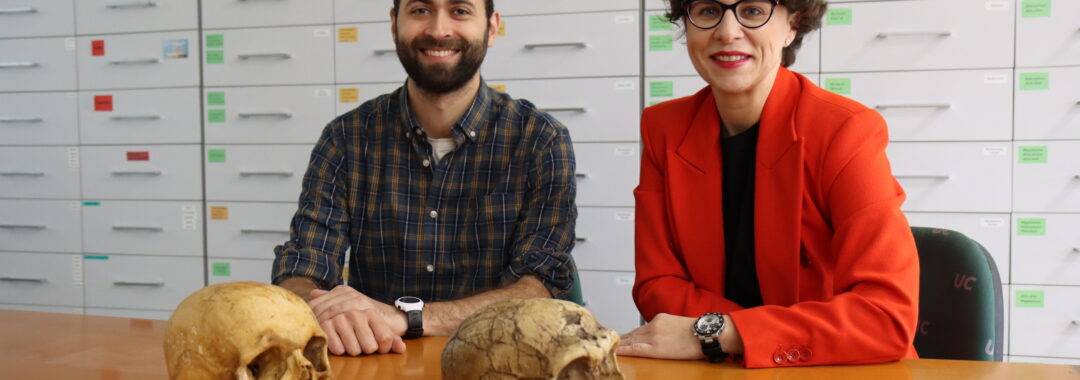Ecosystem productivity affected the spatiotemporal disappearance of Neanderthals in Iberia is the new paper from the ERC-Subsilience Project (ERCEA-818299), just published in Nature Ecology and Evolution and led by Ana B-Marín-Arroyo and Marco Vidal Cordasco, from the University of Cantabria (Spain).
The research has been published in the scientific journal on ecology and evolutionary biology, Nature Ecology and Evolution, and has been undertaken by the researchers from the University of Cantabria, Ana B. Marín-Arroyo and Marco Vidal Cordasco. The paper assesses the associations between ecosystem productivity fluctuations, the timing of Neanderthals’ demise, and the arrival of the first Homo sapiens populations to the Iberian Peninsula. Within the framework of the ERC SUBSILIENCE project (ERCEA-818299), the study was carried out with the researchers from the Mott MacDonald Cambridge, David Ocio, and the Senckenberg Biodiversity and Climate Research Center of Frankfurt/Main, Thomas Hickler.
Multiple hypotheses have been proposed to explain the extinction of Neanderthals so far. One of the most common ones is related to the climatic change during the Marine Isotope Stadial 3 (60-27 ka yr BP). The main aim of this research was to quantify the effect of the rapid and abrupt climatic oscillations on the plant and herbivore biomass during the replacement of late Neanderthals by early modern humans. Thus, it was tested whether fluctuations of edible resources triggered the spatiotemporal replacement patterns of Neanderthal by modern humans in Iberia.
Results of the research
Researchers found out that the extinction of Neanderthals in northern Iberia coincided with a significant drop in the herbivore and plant biomass. Sometime afterwards, the arrival of modern human groups was coeval with rapid recovery in the ecosystem productivity. Conversely, the disappearance of Neanderthals in the Mediterranean regions was not associated with significant fluctuations in the availability of trophic resources. Therefore, results obtained suggest that the causes of the Neanderthals’ disappearance could have differed between regions of Iberia. Moreover, the Mediterranean regions were more stable during the cold periods and hold higher biomass of medium-large herbivores.
These results shed light on long-running debates. For one, it suggests that an ecological factor could have motivated the early disappearance of Neanderthals in the northern part of the Iberian Peninsula. Furthermore, the results suggest that the last Neanderthal groups were not in impoverished areas; on the contrary, the persistence of the last Neanderthal populations in southern latitudes may have been motivated by the abundance of herbivores that were an important part of their diet.
European Research Council (ERC)
The ERC, set up by the European Union in 2007, is the premier European funding organisation for excellent frontier research. It funds creative researchers of any nationality and age, to run projects based across Europe. The ERC offers four core grant schemes: Starting Grants, Consolidator Grants, Advanced Grants and Synergy Grants. With its additional Proof of Concept Grant scheme, the ERC helps grantees to bridge the gap between their pioneering research and early phases of its commercialisation.
The ERC is led by an independent governing body, the Scientific Council. Since 1 November 2021, Maria Leptin is the new President of the ERC. The overall ERC budget from 2021 to 2027 is more than €16 billion, as part of the Horizon Europe programme, under the responsibility of the European Commissioner for Innovation, Research, Culture, Education and Youth, Mariya Gabriel.
Doi: https://www.nature.com/articles/s41559-022-01861-5
Audiovisual content: https://www.youtube.com/watch?v=1GRmAiXs-L4

